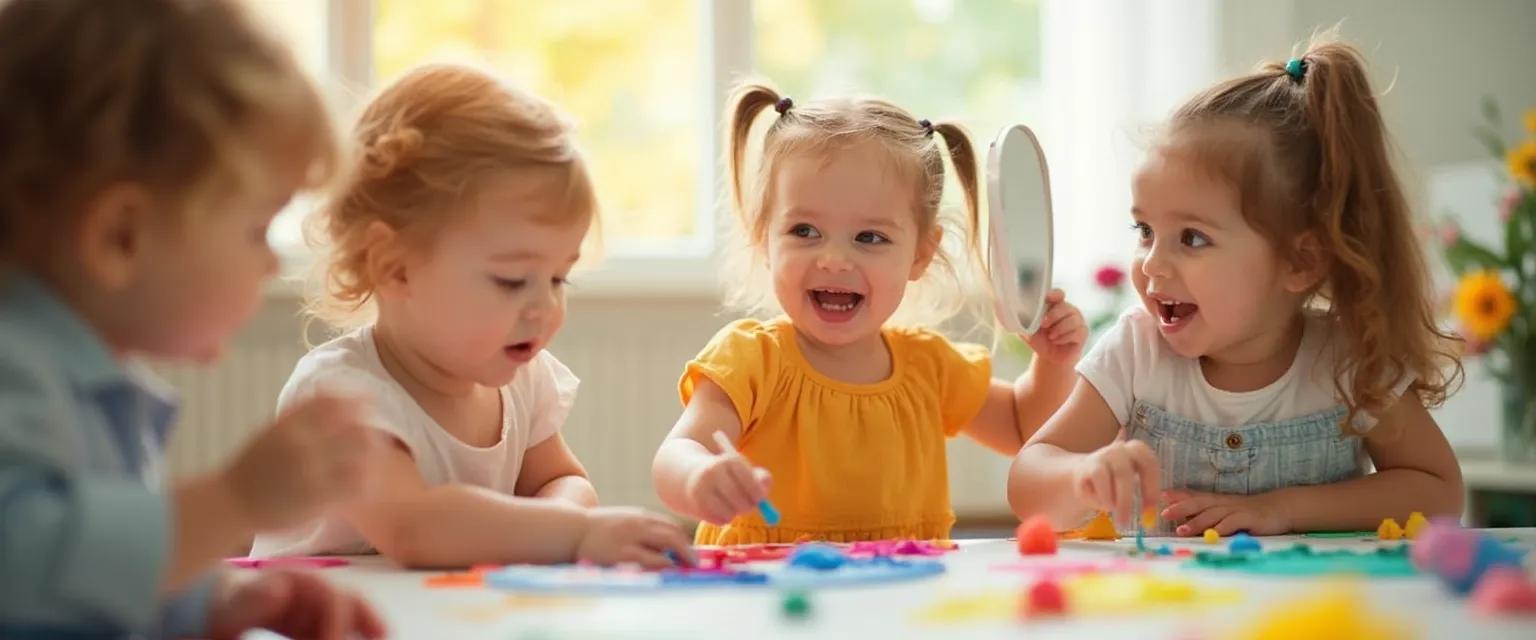7 Playful Activities to Foster Self-Awareness in Early Childhood Development
Nurturing self-awareness in early childhood lays a crucial foundation for your toddler's emotional and cognitive development. Those first magical years between ages 2-4 represent a golden window when little ones begin recognizing themselves as unique individuals with thoughts, feelings, and abilities all their own. Through playful activities designed specifically for these formative years, parents can foster self-awareness in early childhood in ways that feel natural and fun for both you and your child.
Research shows that children who develop strong self-awareness in early childhood tend to demonstrate greater emotional regulation, problem-solving skills, and social competence as they grow. The beauty of toddlerhood is that play isn't just entertainment—it's how these young minds learn about themselves and the world around them. These seven carefully selected activities target different aspects of self-awareness while keeping that playful spirit alive that makes childhood development enjoyable for everyone involved.
Let's explore how these engaging activities can transform everyday moments into opportunities for your little one to develop a healthy sense of self—all while giggling, moving, and having a blast!
The Building Blocks of Self-Awareness in Early Childhood
Body Awareness Activities
Mirror play stands as a cornerstone activity for developing self-awareness in early childhood. When toddlers observe their reflections, they begin connecting their physical movements with what they see. Try the "Silly Faces Game" where you both make expressions in the mirror, helping your child recognize facial features and emotional expressions simultaneously.
Movement-based activities further enhance bodily awareness. "Simon Says" with body parts ("Simon says touch your nose!") helps toddlers identify and control different parts of their bodies. For more active little ones, create a simple obstacle course that encourages crawling, jumping, and balancing—activities that build proprioception, the awareness of body position and movement.
Emotional Recognition Activities
Emotional literacy forms another crucial component of self-awareness in early childhood. Create simple emotion cards with basic feelings like happy, sad, angry, and excited. Play matching games where your toddler connects the emotion to situations or facial expressions. This helps them build vocabulary for their internal experiences.
A toddler-friendly "Feelings Wheel" with pictures rather than words allows children to point to how they're feeling throughout the day. When your little one can identify "I feel sad" instead of just crying, they're developing remarkable emotional intelligence skills that will serve them throughout life.
Preference-building activities help toddlers recognize their unique likes and dislikes. Offer simple choices between two options (red shirt or blue shirt?) and acknowledge their decisions: "You chose the blue shirt! You know what you like!" These small moments of agency build a strong foundation for self-awareness in early childhood.
Integrating Self-Awareness in Early Childhood Through Daily Routines
The beauty of fostering self-awareness in early childhood comes from incorporating these concepts into everyday moments rather than creating separate "teaching times." During bath time, name body parts as you wash them. At mealtime, talk about food preferences and the sensations of different tastes and textures.
Morning routines offer perfect opportunities for self-awareness practice. Try the "Good Morning, Body!" game where your toddler greets each body part as they get dressed. This playful approach reinforces body awareness while making mundane routines more engaging.
Watch for signs that your toddler's self-awareness is developing. These include using personal pronouns correctly ("I want that"), recognizing themselves in photos, and showing awareness of their impact on others ("I made you smile!"). Each of these moments represents significant cognitive milestones in self-awareness in early childhood.
As your child grows, build on these foundations by gradually introducing more complex emotional concepts and mindfulness techniques. Simple breathing exercises like "Balloon Belly" (breathing deeply to make the belly expand like a balloon) introduce mindfulness concepts in age-appropriate ways.
Remember that developing self-awareness in early childhood happens gradually and naturally when supported by loving, responsive caregivers. These seven playful activities create the scaffolding upon which your child builds their understanding of themselves as unique, capable individuals with thoughts, feelings, and preferences all their own. By weaving self-awareness in early childhood practices into daily life, you're giving your toddler essential tools for emotional intelligence that will benefit them throughout their lifetime.




